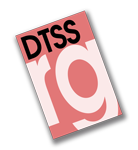El impacto del multilingüismo en el mercado de trabajo y la movilidad laboral: un análisis en clave europea. (RI §427493)

The impact of multilingualism on the labour market and labour mobility: an analysis from a European perspective -
Victoria Rodríguez Rico Roldán
Dado el contexto productivo actual, cada vez son más las empresas interesadas en aprovechar las sinergias del mercado global e insertan en su estrategia de internacionalización el enfoque lingüístico. El presente trabajo ofrece un análisis del impacto de la lengua en el mercado de trabajo, con el fin de valorar los beneficios que la capacitación lingüística despliega tanto en términos de empleabilidad como de competitividad y crecimiento económico. En concreto, se estudiarán los instrumentos de promoción que viene implantando la Unión Europea y, muy especialmente, se abordarán los postulados que, en relación con el tema objeto de investigación, derivan de la proclamación de la igualdad de trato como fundamento de la libre circulación de trabajadores. Si bien el Tratado de Funcionamiento de la Unión Europea no contempla la lengua como un motivo independiente de discriminación en sentido estricto, se acometerá un estudio a la luz de la prohibición de discriminación por razón de nacionalidad, tal y como hace el Tribunal de Justicia de la Unión Europea, cuya jurisprudencia será igualmente examinada.
I. UNA APROXIMACIÓN AL IMPACTO DE LAS EXIGENCIAS LINGÜÍSTICAS EN EL ACCESO AL MERCADO LABORAL.- II. EL MULTILINGÜISMO COMO OBJETIVO RECURRENTE EN LA AGENDA EUROPEA.- III. LA RELACIÓN ENTRE LA CAPACITACIÓN LINGÜÍSTICA Y LA COMPETITIVIDAD EMPRESARIAL EN EL MARCO DE UNA ECONOMÍA GLOBAL.- IV. LA RELEVANCIA DE LA FORMACIÓN EN LA PROMOCIÓN DE LA EMPLEABILIDAD.- V. LA MOVILIDAD LABORAL INTERNACIONAL: ENCUENTROS Y DESENCUENTROS A PARTIR DE LAS DEMANDAS LINGÜÍSTICAS.- VI. LA ACREDITACIÓN DE LA CAPACITACIÓN LINGÜÍSTICA A LA LUZ DE LA LIBRE CIRCULACIÓN DE TRABAJADORES. 6.1. El principio de igualdad de trato y la eliminación de las barreras lingüísticas. 6.2. Especial referencia al empleo público en la Unión Europea: conflictos en relación con la lengua del procedimiento y las pruebas de selección.- VII. CONCLUSIONES.
Given the current productive context, more and more companies are interested in taking advantage of the synergies of the global market and are including a linguistic approach in their internationalization strategy. This paper offers an analysis of the impact of language on the labour market in order to assess the benefits of language skills in terms of employability, competitiveness and economic growth. Specifically, the promotional instruments that the European Union has been implementing in this respect will be studied, but there will also be an opportunity to consider those cases in which language represents a barrier and jeopardizes equal treatment as a basis for the free movement of workers. Although the Treaty on the Functioning of the European Union does not consider language as an independent ground for discrimination in the strict sense, a study will be undertaken in the light of the prohibition of discrimination on grounds of nationality, as does the Court of Justice of the European Union, whose case law will also be examined.
I. AN APPROACH TO THE IMPACT OF LANGUAGE REQUIREMENTS ON ACCESS TO THE LABOUR MARKET.- II. MULTILINGUALISM AS A RECURRENT OBJECTIVE ON THE EUROPEAN AGENDA.- III. THE RELATIONSHIP BETWEEN LANGUAGE SKILLS AND BUSINESS COMPETITIVENESS IN THE FRAMEWORK OF A GLOBAL ECONOMY.- IV. THE RELEVANCE OF TRAINING IN THE PROMOTION OF EMPLOYABILITY.- V. INTERNATIONAL LABOUR MOBILITY: ENCOUNTERS AND MISUNDERSTANDINGS DUE TO LANGUAGE DEMANDS.- VI. THE ACCREDITATION OF LANGUAGE SKILLS IN THE LIGHT OF THE FREE MOVEMENT OF WORKERS. 6.1. The principle of equal treatment and the elimination of language barriers. 6.2. Special reference to the public employment in the European Union: conflicts in relation to the language of the procedure and the selection tests.- VII. CONCLUSIONS.
